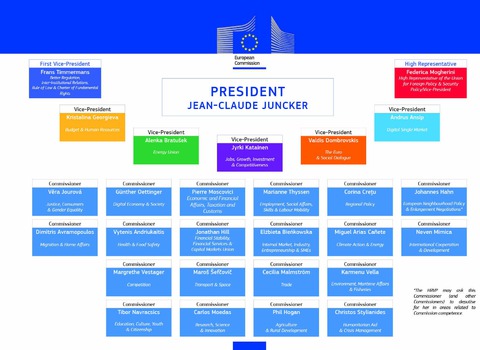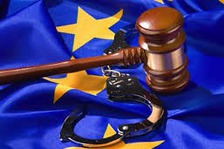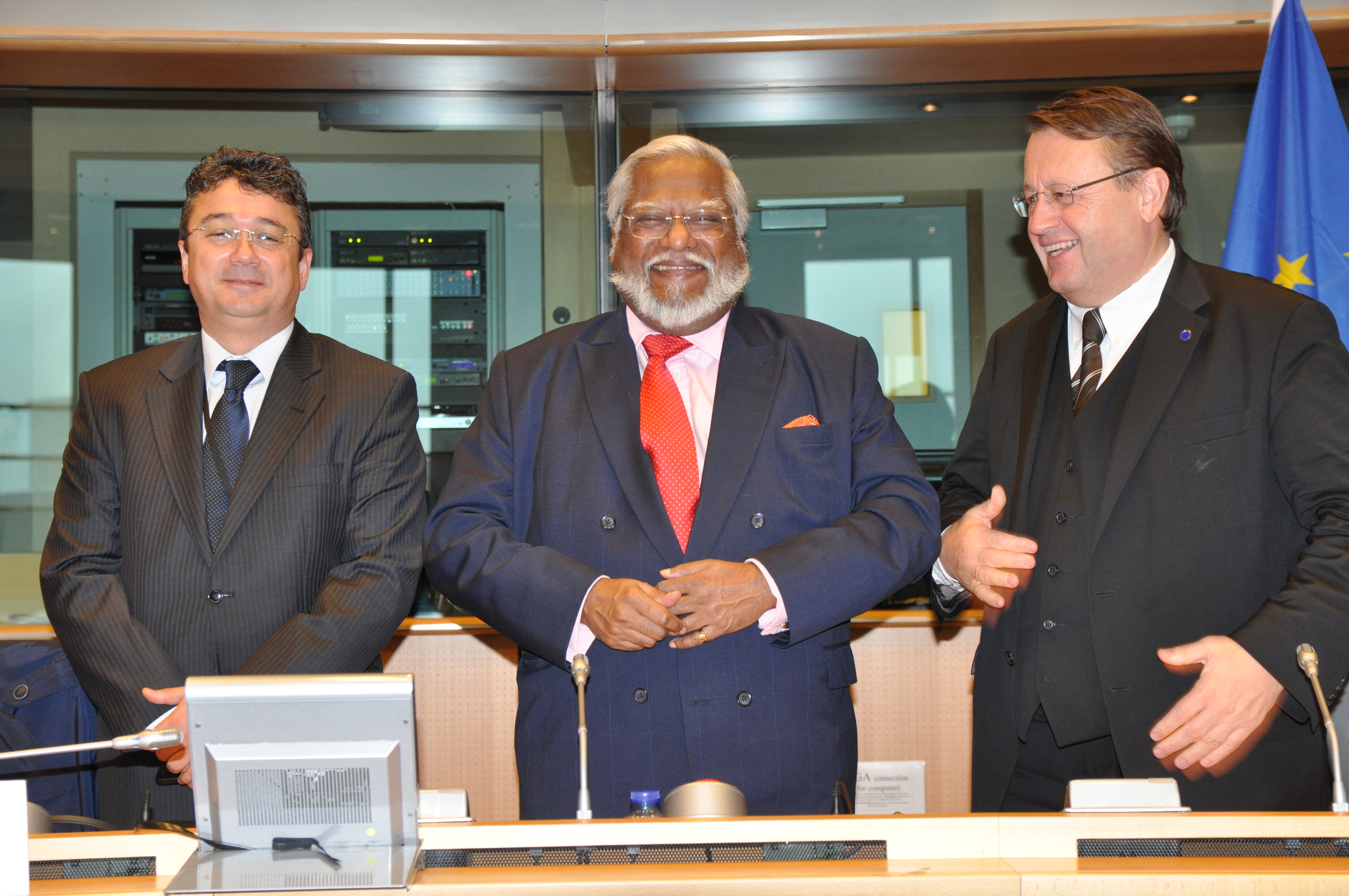| View this email online if it doesn't display correctly |
|
|
|
|
|
|
 |
Throughout his career Mr Juncker has been unwavering in his commitment to a federal state of Europe. To this end he has advocated a single EU foreign policy, EU-wide taxation, EU common citizenship and with that of course, unrestricted migration. All of which constitutes a permanent shift of power away from member-states and towards the executive Mr Juncker now commands.
Consequently, I deemed it necessary to vote against the confirmation of Mr Juncker, albeit in vain. Some ECR supporters of a different mind pointed to so-called assurances Mr Juncker gave us at the ECR hearing, that he was not a federalist and would seek to accommodate our concerns. Unfortunately, these assurances were silently put aside in Juncker’s meetings with other political groups. Therefore I must conclude Juncker’s testimony was little more than a mountebank performance solely intended to get him through the series of short hearings that pass for democratic scrutiny in Strasbourg. Indeed, early indications of President Juncker’s true motives are not encouraging, namely the recent dismissal of the Prime Minister’s aspiration to stem EU migration: “This is a basic principle of the EU since the very beginning and I am not prepared to change this.”
|
|
|
Meet the new Commission, same as the old Commission
|
|
 |
President Juncker’s 27 Commissioners are undeniably an esteemed collection. The new Commission includes nine former prime ministers and deputy prime ministers, three foreign ministers, two finance ministers and six other assorted ministers. How such a group can remain unified and provide a coherent direction remains unclear at this point; much of this will depend upon Juncker’s one innovation; the Vice-President. The title of Vice-President has long been a largely honorary title, similar to the British title of First Secretary of State. However under Juncker’s proposals, seven Vice-Presidents will have varying degrees of oversight and authority over policy and, by extension, over other Commissioners. This could ultimately provide a more coordinated approach and there are reasons for cautious optimism in that both Vice-Presidents charged with overseeing the economic portfolios; Latvia’s Valdis Dombrovski and Finland’s Jyrki Katainen respectively, are both centre-right former prime ministers with records of fiscal responsibility and prudence. Under them are the two key economic positions; ‘Financial Stability, Financial Services and Capital Markets Union’ to be assumed by Conservative peer Lord Hill; and ‘Economic and Financial Affairs, Taxation and Customs’ to be run by French socialist Pierre Moscovici. Whilst I find it encouraging that Lord Hill will be nominally responsible for oversight of the banking sector, the nomination of Pierre Moscovici is most concerning.
For the past two years, Moscovici has been serving as the French minister of finance, and has presided over policies that have taken the French economy to the brink of collapse. French debt is now 95.3% of GDP, unemployment at 12% and half-hearted attempts to reduce the deficit have proved futile. The results are lamentable but those responsible wholly unrepentant. When added to this his nonchalant attitude to France potentially missing Eurozone budgetary requirements, this seems to me a man wholly unsuited to hold a key role in what President Juncker has claimed to be a new era of fiscal responsibility.
|
|
|
European Arrest Warrant: British sovereignty extradited to the ECJ
|
|
 |
To opt back into the European Arrest Warrant would be to forever cede the right to decide who we extradite to other EU nations to the European Court of Justice (ECJ). Whatever evidence has (or has not) been gathered against the suspect will face no scrutiny from a British court; the demand from the ECJ will be final. I need look no further for an example on how easily this unchecked power can be abused than the case of Andrew Symeou.
In 2009, British student Andrew Symeou was extradited to Greece under an EAW. This related to the death of a man in an Athens nightclub two years earlier. Whilst Andrew had been in Athens at the time, he was not in the nightclub during the murder and bared no resemblance to the witness descriptions. The charges were based upon falsified statements gathered by the Greek police through the violent intimidation of witnesses. British officials told Andrew that the charges against him were clearly unfounded yet under the EAW they had no option but to comply and extradite him to Greece; where he spent ten months in a notorious Greek prison before being released on bail. Banned from leaving Greece, it was almost four years after the initial events that Andrew’s case was heard – and promptly cleared by a Greek court. A young life scarred which might otherwise had been protected had Britain not been subject to EAW.
Advocates of the EAW tell us that it is intended only for serious criminals and terrorists, yet the accounts above were neither, nor does it seems particularly useful to spend time and resources to track down, arrest and pay to extradite a Polish migrant back to Warsaw for outstanding parking tickets. In 2012/13 the UK received 6,293 EAWs, almost triple the number from 2007. Evidently, the EAW is not being reserved for the most heinous of crimes, it is being used increasingly more and on tentative grounds. In a hasty effort to bolster support, we have been told in the past week that the UK will make changes to its own domestic law (under that well-worn phrase ‘additional safeguards’) to affect how the EAW operates, but how can UK advocates guarantee the ECJ will operate under the same interpretation? Indeed the ECJ has recognised no such change to current proceedings.
It is entirely possible, and I would argue, preferable, for the UK to have a bilateral extradition agreement in place with the EU without resorting to this permanent transfer of sovereignty to the ECJ. This is not an effective instrument of justice but a key step towards the integration of national justice systems. By opting out of the EAW we would be maintaining our own British legal approach to issues of liberty; removing ourselves from the march towards one EU justice system dictated by the ECJ; and would be reasserting the basic principle that matters of law and order should be subject to UK democratic control.
|
|
|
EP-Korea delegation: anything is possible
|
|
|
|
UKIP attempts to drown out the British success story
|
|
|
|
|
|
|
 |
This month I was officially confirmed as the new Chairman of the European Parliament’s Delegation for relations with the Korean Peninsula. This is a very important time where we find ourselves at the cusp where anything is possible. In the European Institutions we have witnessed a number of positive developments in the past month, especially in relation to our dialogue with North Korea and I am confident that in this present moment there a number of things the EU can do as an interlocutor in this conflict externally to the framework provided under the six party talks.
Created at the beginning of the 6th Parliamentary term in 2004, the Delegation for Relations with the Korean Peninsula covers relations with both the Republic of Korea and the Democratic People’s Republic of Korea. The delegation is comprised of 10 MEPs and aims to enhance relations and maintain communication channels with both countries under its framework.
This is a crucial time for relations between the EU and North Korea and to that end I began by meeting His Excellency Mr Hyon Hak Bong, the North Korean Ambassador to the Court of St James’s as well as Kang Sok Ju, Secretary and Director of the Korean Workers’ Party International Affairs Department. These initial meetings covered issues such as food security, human rights, humanitarian assistance and the development of a stable political dialogue going forward.
|
| I will be back in touch with you again very soon. In the meantime you can check my website www.nirjdeva.com for regular updates and if I can be of any assistance to you on anything raised here or anything else for that matter, please do not hesitate to contact me at nirj.deva@europarl.europa.eu.
|
|
|  |
Rarely a news cycle goes by without footage of Nigel Farage gleefully holding up the EU’s latest folly as another reason to punish the Tories. But when we take to the streets in Rochester and Strood, let’s go there to our own tune and start shouting about all our undoubted achievements in this parliament.
When we came to office in 2010, Labour had pushed the British economy to the brink, what little growth existed was dependent on state spending, our credit rating was downgraded and we were suffering under the largest budget deficit in the EU. Now just four years later we have the fastest growing economy both in Europe and the G7, the highest number of people employed in our nation’s history (including two million new private sector jobs), a quarter of a million new small businesses, a record number of apprenticeships, the tax threshold raised to £10,000 and all whilst the deficit has been cut by a third.
And that’s just on the economy, crime has been cut by 10%, benefits have been capped to end the scandal of out-of-work households claiming more than the average working family earns, we’ve freed up access to people’s hard-earned pension pots and revolutionised education with free schools and an emphasis on high exam standards and academic rigor.
All this and more. And think on what we could achieve with another term, free from the shackles of the Liberal Democrats! The Britain that goes to the polls in 2015 will be a nation wealthier, safer, more confident in itself and more ambitious for the future than the wreck Labour left for us. That’s the positive message I’ll be taking to Rochester this weekend, I hope you’ll have the time to join me on the campaign trail.
|
|
|
|
| | | | |
|